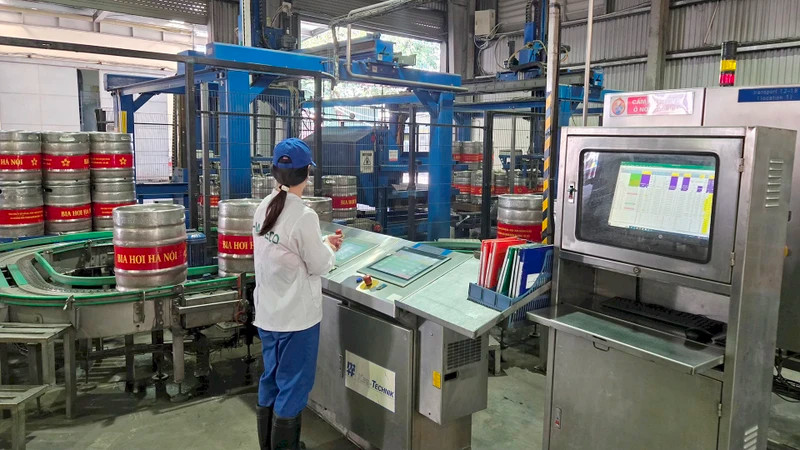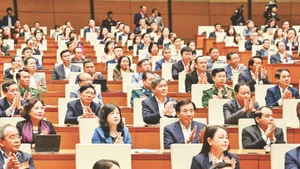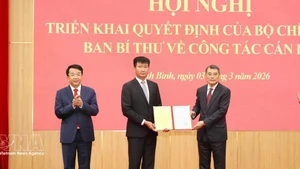However, for this policy to be truly effective, careful consideration of various impact factors is necessary to balance the interests of the state, citizens, and businesses.
Finding a comprehensive and suitable approach
According to the Ministry of Finance, the special consumption tax on alcohol, beer, and tobacco has already been gradually increasing between 2016 and 2019. However, the consumption of these products in Vietnam remains high. Currently, the special consumption tax rates applied are 75% for tobacco, 35-65% for alcohol (depending on the type), and 65% for beer.
The proposed amendment to the Special Consumption Tax Law suggests combining a proportional tax rate with an absolute tax on tobacco while continuing to raise the tax on alcohol and beer to limit production, imports, and consumption.
Public opinion generally supports higher taxes on discouraged products, as this not only boosts state revenue but also reduces consumption, thereby mitigating social consequences such as alcohol-related traffic accidents, smoking-related diseases, and burdens on the healthcare system. However, there are also concerns and differing viewpoints.
In response to the draft amendment, the Vietnam Chamber of Commerce and Industry (VCCI) recently submitted a proposal to the Ministry of Finance recommending a delay in the tax increase on beer and alcohol, with suggested implementation from 2028 with an increment of only 5% every two years.
For cigarettes, VCCI proposes an absolute tax of 2,000 VND per pack starting in 2026, increasing by 2,000 VND every two years, with a maximum of 6,000 VND per pack by 2030. This contrasts with the Ministry of Finance’s initial proposal of an increase of 2,000–5,000 VND per pack in 2026, followed by gradual annual increases of 1,000–2,000 VND, aiming to reach 10,000 VND per pack by 2030.
VCCI argues that raising taxes alone without accompanying measures may not yield the desired overall effect. Instead, it could inadvertently encourage smuggling of these products or drive consumers toward cheaper, unregulated alternatives, ultimately harming public health and potentially leading to downsizing or closures of businesses in these industries.
From a tax advisory perspective, Nguyen Thi Cuc, President of the Vietnam Tax Consultants Association, emphasised the need for thorough research and assessment of the impact of increased special consumption tax on production. She pointed out that alcohol, beer, and tobacco companies already bear multiple taxes and fees, and a sudden tax hike would further burden them.
Similarly, Ho Le Nghia, Chairman of the Vietnam Tobacco Association, warns that excessive tax increases could shock the market, drastically reducing legal cigarette consumption. This could significantly impact tobacco businesses in Vietnam, making it difficult to achieve both revenue growth and smoking reduction targets. Experience shows that when the price of legal cigarettes rises, consumers tend to switch to cheaper illicit alternatives.
Additionally, there is concern about the sudden unemployment of tens of thousands of workers in tobacco production and distribution, as well as the livelihoods of hundreds of thousands of farmers growing tobacco leaves. Therefore, a well-planned tax increase with an appropriate timeline is crucial to avoid market shocks affecting businesses and consumers.
Carefully evaluating the impact
Vietnam has nearly 14,000 hectares of tobacco farms, supporting 90,000 farmers, mainly in border and mountainous provinces like Lang Son, Cao Bang, and Bac Kan. A tax hike would inevitably reduce production demand, directly impacting these farmers.
Chu Van Luan, a farmer from Bang Van Commune, Ngan Son District, Bac Kan Province, shared: “I was among the first farmers to grow tobacco here in 1997. Since then, this crop has provided my family with a stable annual income of 70–80 million VND, and in some years, even over 100 million VND. Given the soil conditions in our area, if we only grew corn, sweet potatoes, or cassava, we wouldn’t have been able to escape poverty and achieve stability over the past two decades. Thanks to tobacco farming, our community has seen improved livelihoods, reducing the poverty rate by 4-5% annually.”
Beyond the social welfare concerns for tobacco-growing regions, experts are also highly concerned about increased cigarette smuggling. According to the Vietnam Tobacco Association, legal cigarette production could decline by over 70% by 2030, leading to an estimated tax revenue loss of 40 trillion VND, compared to the current 5-6 trillion VND.
Raising the special consumption tax on alcohol, beer, and tobacco is a necessary policy, but it must be implemented with a roadmap that allows all stakeholders to adapt. If taxes are raised too abruptly, pushing up legal retail prices, consumers — especially those with lower incomes — may turn to smuggled goods and unregulated substitutes.
Therefore, to balance the interests of the state, businesses, and consumers, it is not only essential to draw from international experience but also to enhance state management, strengthen anti-smuggling efforts, and prevent tax revenue losses.
A thorough assessment of various factors, such as product characteristics, consumption impact, and economic conditions, will help ensure a policy that both facilitates business operations and effectively regulates consumer behaviour, ultimately reducing smoking and excessive alcohol consumption in the long term.















